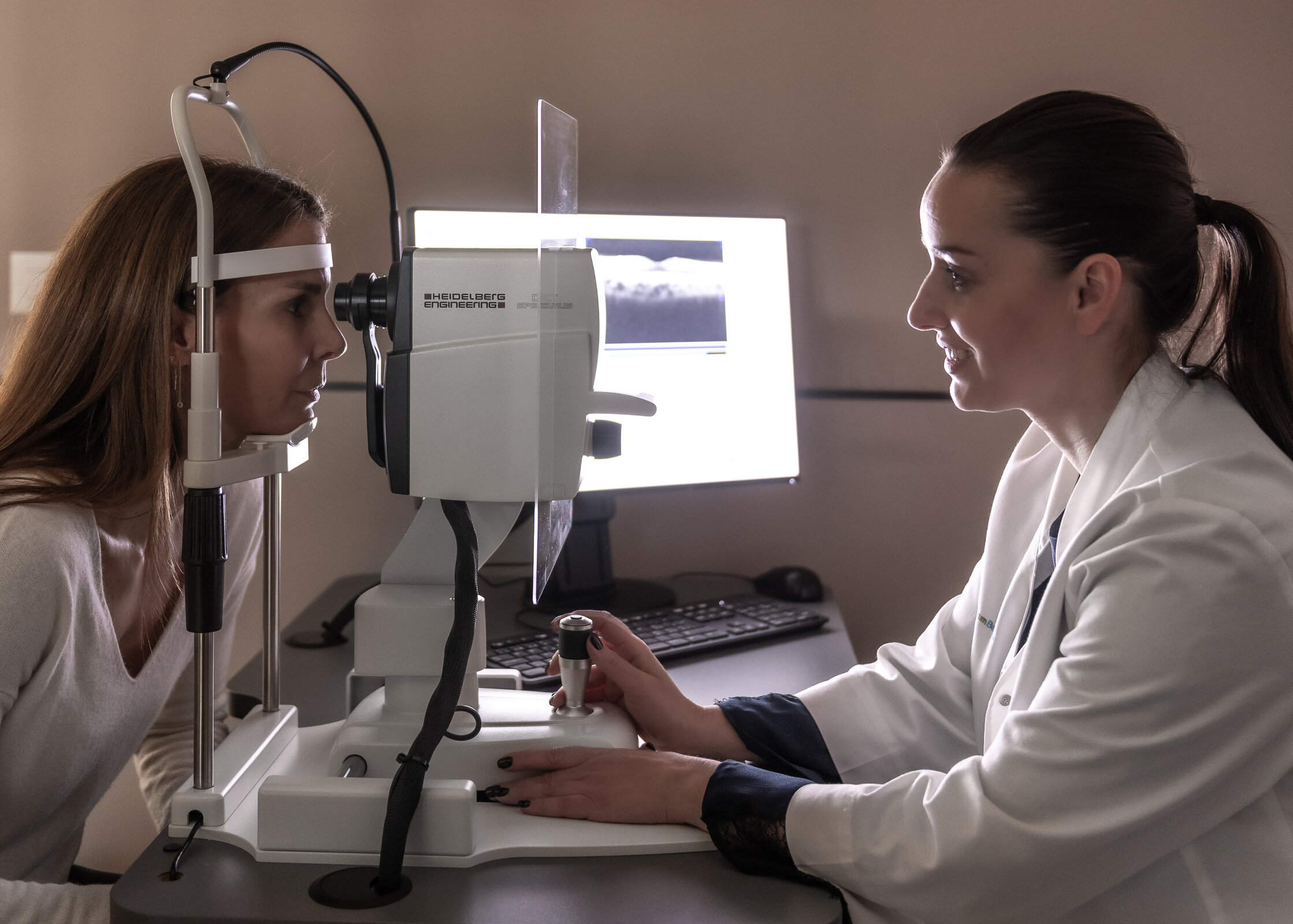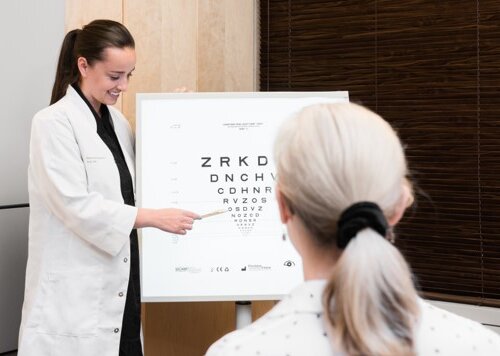Center for Multiple Sclerosis
Book an appointmentConditions We Treat
As a leading MS center in Switzerland, we offer interdisciplinary expertise at the highest level. Our Multiple Sclerosis Center has state-of-the-art technology, diagnostics, and treatment options. Our experienced specialists have worked as senior physicians or heads of departments in the field of MS, and can provide personalized care tailored to the individual needs of each patient. In addition to conventional medical treatments, our Multiple Sclerosis Center also supports complementary medical therapies.
Better Controllability of Treatment
Today, neurologists can choose from over 15 different drugs to treat multiple sclerosis. MS is therefore a highly treatable condition. When selecting a therapy, we always take into account individual life circumstances such as increased travel activity, desire for pregnancy, or the presence of other relevant comorbidities.
The Bellevue Medical Group, with its specialist centers “Multiple Sclerosis Center” and “Neuroimmunological Outpatient Clinic”, offers its patients targeted and personalized therapies. Our doctors and specialists accompany each patient individually, continuously, and in close collaboration with specialists from other related medical fields.
MS Outpatient Clinic Offering:
- Consultation, diagnosis, and therapy
- Complete diagnostics – also possible in one day: clinical neurological examination, MRI, lumbar puncture, blood tests, and evoked potentials
- Participation in clinical studies in collaboration with neurological university clinics in Switzerland and abroad
- Second opinion consultations
MS Infusion Center Offering:
- Outpatient emergency treatment for disease relapses with intravenous cortisone administration
- Outpatient escalation therapy for particularly active forms of MS with constant monitoring by an MS-experienced neurologist
- Intravenous therapies (e.g., with monoclonal antibodies)
- If indicated, inpatient diagnostics and therapy at Hirslanden Klinik Zurich
Immunological Ambulatory Offering:
- Highly specialized medicine based on the latest scientific knowledge
- Diagnosis and treatment for a wide range of inflammatory diseases of the nervous system (including autoimmune and infectious inflammations of the brain and meninges)
- Neurological care for systemic inflammatory diseases (e.g., vasculitis, granulomatous diseases, rheumatic disease complex)
- Neurological complications from selective biological therapies
- Interdisciplinary care and second opinionsContinuity of care
Our Additional Services
OCT (Optical Coherence Tomography) is an examination using the latest laser technology. The eye scan is performed while sitting without medication or drops to dilate the pupils. In a few minutes, the retina is illuminated, and the images immediately provide information about the state of the optic nerves, which often show changes in the early stages of many neurological diseases.
Multiple sclerosis is one of the most dynamically evolving neurological diseases with many exciting new research developments in this field. We now have a variety of different treatment approaches available, allowing us to offer patients a personalized therapy tailored to their individual needs and life situation.
As successful as disease control with medication may sometimes be, we also observe more and more other aspects that may affect a patient’s quality of life. Fatigue e.g., is one of the most burdensome symptoms for many patients. It is also the most commonly complained about symptom, even ahead of impairments due to spasticity or bladder dysfunction. Diagnostically, we face the challenge of detecting a symptom that is hardly visible through traditional clinical tests. The impact of fatigue on quality of life is nevertheless demonstrably high.
As the leading MS center in Zurich, we want to guide our patients through the necessary diagnostic steps to help them decide on their individual therapy options. This requires a patient’s willingness and personal resilience to accept and continue with any necessary lifestyle changes. But perhaps this is precisely the difference from other symptoms of the disease that patients have no control over.
During this course, patients will learn whether and when medication makes sense, what role nutrition, gut flora, and exercise play, and how they can achieve success with even small daily changes.
- Fatigue counseling sessions
- In-depth sleep and fatigue diagnostics in our own sleep laboratory
- Neuropsychological examination to better understand fatigue and to diagnose types of fatigue
- Medication for extreme fatigue cases
- Nutritional advice considering the microbiome and based on Ayurvedic principles
- Exercise & breathing therapy
- Acupuncture
There have been significant advances in recent years in the treatment and care of people with multiple sclerosis, The significantly improved efficacy of newer therapies has also highlighted the need to use new diagnostic methods to better assess the progression of the disease and to ensure optimal treatment.
At the Multiple Sclerosis Center, we are focused on treating patients based on the latest scientifically proven methods for assessing the progression of MS.
Assessing the function and structure of the nervous system is important for evaluating the disease, and methods are needed that can help predict the further course of the disease as early as possible.
Optical coherence tomography can help diagnose MS earlier.
Multiple sclerosis is characterized by the breakdown of nerve cells and nerve cell extensions in the central nervous system (CNS). Therefore, optic neuritis is a common symptom.
The optic nerve is part of the central nervous system and is often affected as an initial symptom (optic neuritis) in the manifestation of MS or over the years in the course of the disease.
During the course of the disease, up to 70% of all MS patients develop optic neuritis. This leads to visual impairments and, in the worst case, to loss of vision. With OCT, these changes can be detected early and treated more effectively.
According to new research studies, OCT is also becoming established as a useful addition to traditional MRI and evoked potentials for better diagnosing the progression of MS.
Consultation Hours for Multiple Sclerosis at the following locations
Neurocenter Bellevue
Theaterstrasse 8
8001 Zurich
Neurocenter Aarau
Rain 34
5000 Aarau
Neurocenter Basel
Marktplatz 5
4001 Basel
Neurocenter Bodensee
Hauptstrasse 65
9400 Rorschach
Neurocenter Enge
Seestrasse 37
8002 Zurich
Neurocenter Luzern
Falkengasse 3
6004 Lucerne








